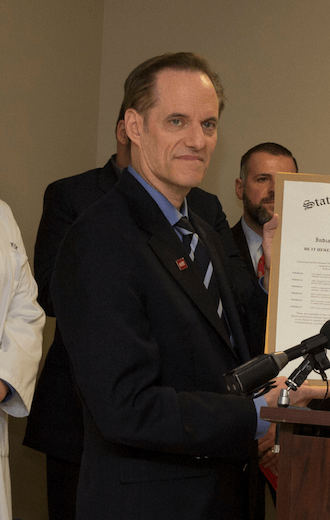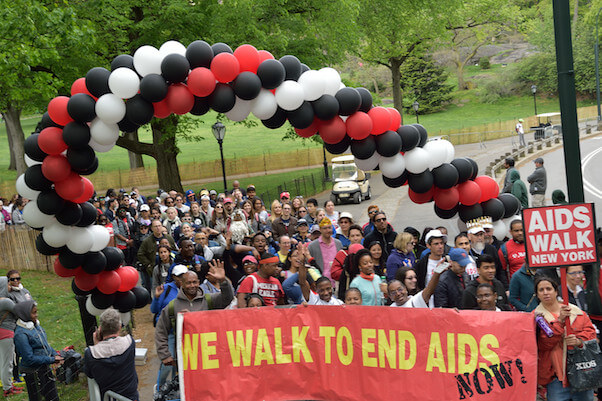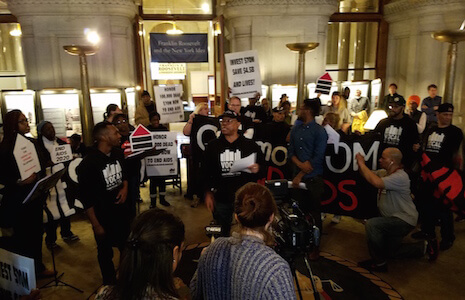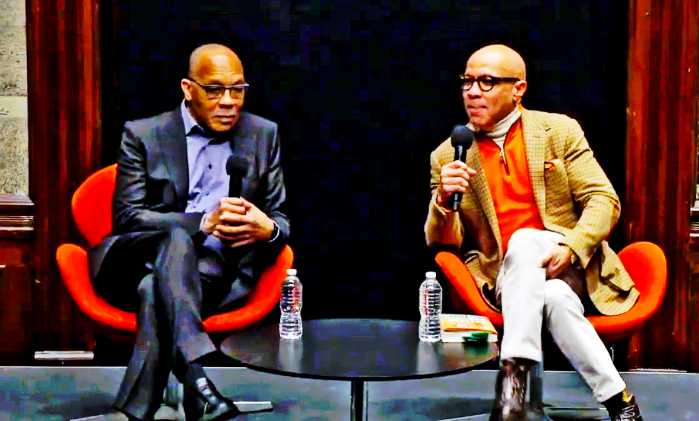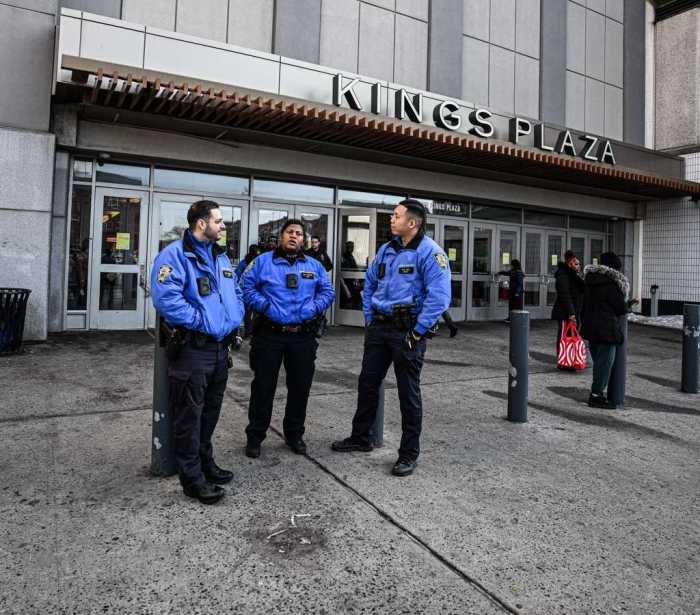Former Vice President Joe Biden turned to out gay CNN host Anderson Cooper during a town hall event earlier this year and awkwardly asked him if he remembered back to decades of the past in San Francisco.
“It was all about, well, gay bathhouses,” Biden said. “It was all about round-the-clock sex.”
The former vice president was a bit off on his timeline, saying those bathhouses were still running 15 to 20 years ago. With the exception of some sex clubs, it has actually been more than 35 years since gay men have been allowed to cruise through actual bathhouses in San Francisco — since those establishments were shuttered as HIV/ AIDS ravaged the community.
That’s all about to change.
Three-plus decades later, what is the market for the once-thriving sex establishments?
San Francisco city supervisors voted unanimously on July 28 to lift restrictions on bathhouses once the coronavirus pandemic subsides. The bathhouses were first shut down in 1984 when the San Francisco Health Department intervened and encouraged courts to step in and place significant limitations on bathhouses, requiring them to ban the rental of private rooms and require monitors on site, among other regulations.
That forced the shuttering of many bathhouses, and soon enough, the few bathhouses that remained open under those strict rules shut their doors.
Bathhouses in New York, where HIV/ AIDS was also taking a deadly toll on the city, also fell victim to similar strict regulations the following year.
According to the San Francisco-based LGBTQ publication Bay Area Reporter, the effort to lift those restrictions more than three decades later has been led by out gay San Francisco Supervisor Rafael Mandelman, who represents the Castro, Diamond Heights, Glen Park, Corona Heights, Eureka Valley, and other neighborhoods.
The push to ease the rules was already underway prior to the emergence of COVID-19, but was delayed when the pandemic engulfed the nation. In February, Mandelman opened up about his initiative.
“At the height of the AIDS epidemic in the 1980s, San Francisco instituted policies targeting bathhouses and sex venues frequented by gay men that still remain in place,” Mandelman wrote on Twitter February 6. “Decades later, with the emergence of PrEP and San Francisco’s successful efforts getting new HIV diagnoses under 200 for the first time since the 1980s, these regulations — including a ban on private rooms and required monitoring of patrons’ sexual activities — have no public health rationale.”
Mandelman added that the “unnecessary regulations… to our knowledge don’t exist in any other city.”
The San Francisco Board of Supervisors’ website describes the legislation as an “Ordinance amending the Health Code to require the director of health to adopt minimum health and safety standards governing the operation of commercial adult sex venues, but prohibiting the director from adopting standards that require monitoring of patrons’ sexual activities, or that regulate doors or mandate unlocked doors in areas where sexual activity may occur.”
Mandelman forsees updated standards that would highlight a focus on safe sex at those establishments.
“When properly operated, by providing access to safer sex educational materials and supplies and HIV and STD testing, these venues assist rather than impede our efforts to control the transmission of HIV,” Mandelman said, according to the San Francisco Examiner.
Whether there is an appetite for bathhouses in San Francisco during the modern era, however, is not clear. Bathhouses and LGBTQ bars around the country have been increasingly impacted by the rise of smartphone apps that allow individuals to meet others with far more convenience than in the past.
The Bay Area Reporter noted that The Watergarden, a bathhouse in nearby San Jose, went out of business earlier this month, along with the sex club Blow Buddies, which was in San Francisco and noted on its website that the coronavirus pandemic forced it to close for good.
In the Castro, Eros, a gay sex club remaining in San Francisco, is temporarily closed due to the pandemic and is likely to remain shuttered until at least August, “with the possibility of an extension,” according to a notice on the club’s website.
There are bathhouses lingering just outside of the confines of the city of San Francisco. Steamworks, which is in Berkeley, has closed temporarily due to the pandemic and announced that they “hope to have you back once the worst of this outbreak is over.”
The coronavirus pandemic will likely delay the ability of any bathhouses to open for at least the foreseeable future. The city saw an uptick in COVID-19 cases over the summer and Governor Gavin Newsom has imposed a ban on indoor activities at bars, spas, gyms, and other establishments.
In New York State since the 1980s, anal, oral, and later vaginal sex in commercial establishments has been banned, which led to the closure of many establishments in the ‘80s and ‘90s by the city health department. In recent decades, the health department has not moved against such venues, though efforts to change the law and regulate commerical sex establishments so they could operate on a fully legal basis have not made any headway.
To sign up for the Gay City News email newsletter, visit gaycitynews.com/newsletter.


